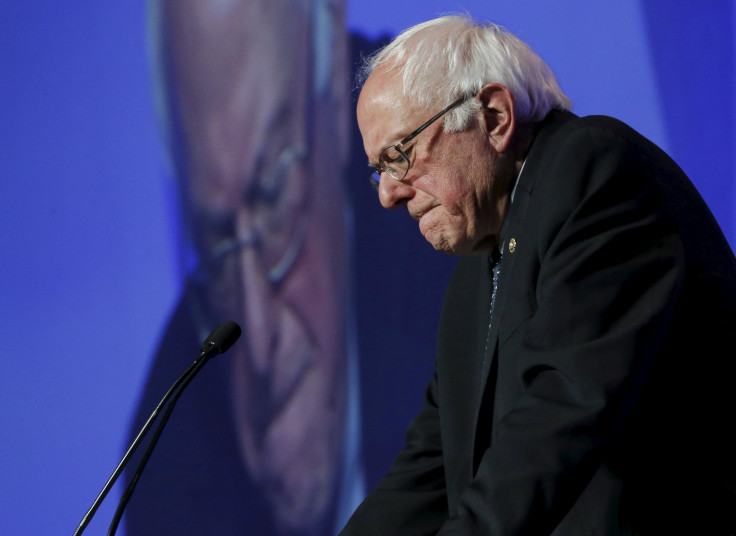Could Bernie Sanders' Financial Transaction Tax Make Markets More Volatile?

Democratic presidential candidate Bernie Sanders has long advocated for what is known as a financial transaction tax, which would impose a levy on bond, stock and derivatives trades, to help pay for some of his spending ideas. While supporters of this tax on Wall Street have said it could make markets less volatile, some disagree, saying the tax might make markets even more volatile and not raise as much money as predicted, the Wall Street Journal reported.
The Vermont senator introduced a bill in May that would require a 0.5 percent tax rate on stock trades and 0.1 percent rate on bond transfers. Sanders estimates the cost of some of his proposals, including free public college and interest rate cuts on student loans, at $75 billion. A transaction tax could fully fund that.
However, research has suggested such taxes either don’t affect market volatility or actually increase the volatility because traders tend to reduce their participation, leading to sharp declines, the Journal said. Some estimates say a 0.01 percent tax would reduce trading volume by as much as 24 percent a year.
Because the tax raises capital costs, there is typically less investment and, as a result, less economic output, the European Commission found when it looked at the issue.
Supporters of the tax contend it would help reduce speculation as has happened in other countries, including the United Kingdom, Marketplace reported. Sanders’ proposed tax, however, would be higher than those in other countries, some experts say, and when such taxes are high, people are hesitant to trade on those exchanges.
Checking @BernieSanders's math in last night's #DemDebate: https://t.co/IGFOHSRKNg @ScottElliotG pic.twitter.com/NWMKPFLEOl
— Tax Foundation (@taxfoundation) February 13, 2016
“That happened to Sweden several decades ago when it introduced a very large transaction tax,” Stephen Rosenthal, a senior research affiliate at the Tax Policy Center, told Marketplace. “The trades simply moved to the U.K. and other jurisdictions.”
© Copyright IBTimes 2025. All rights reserved.





















